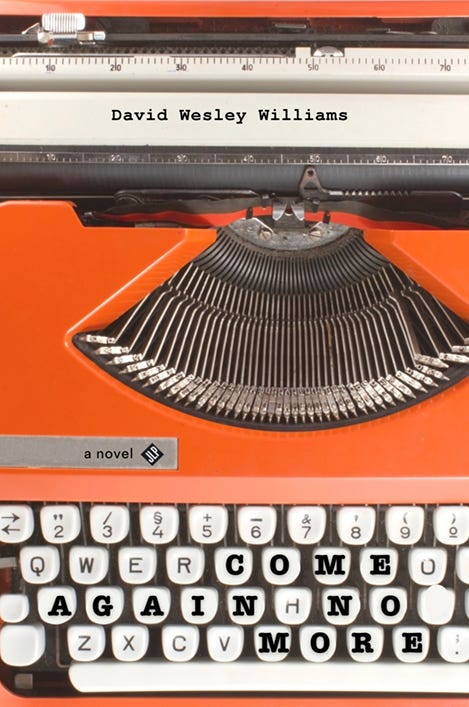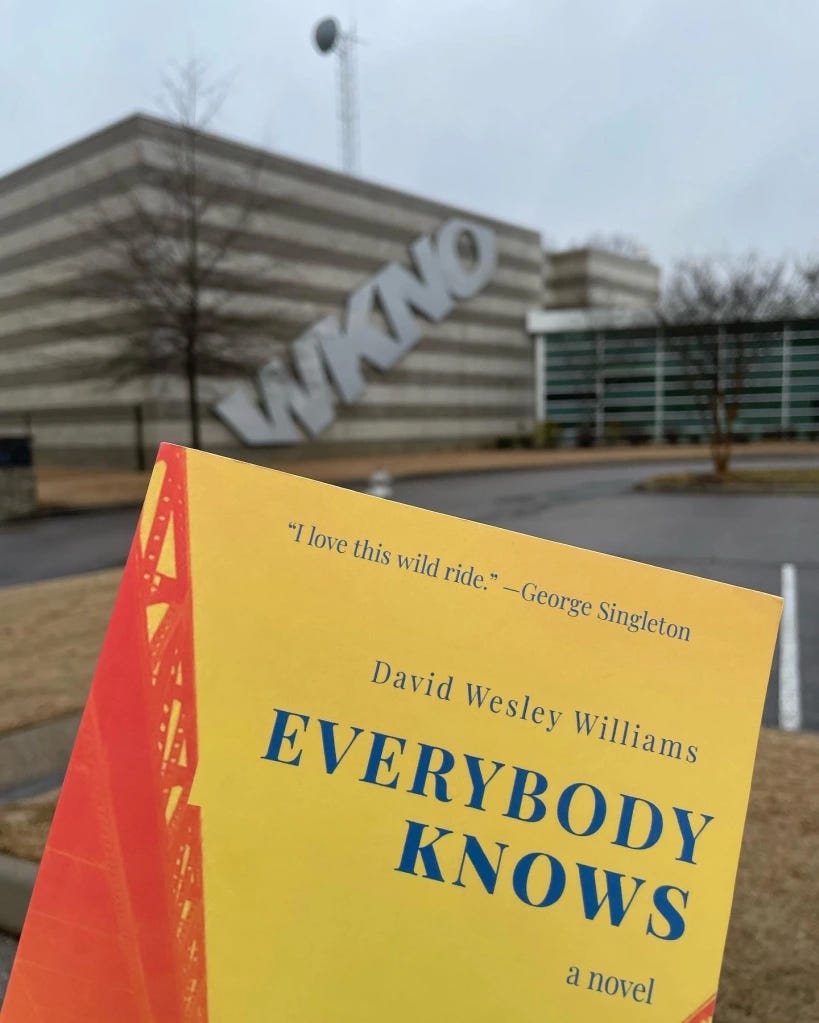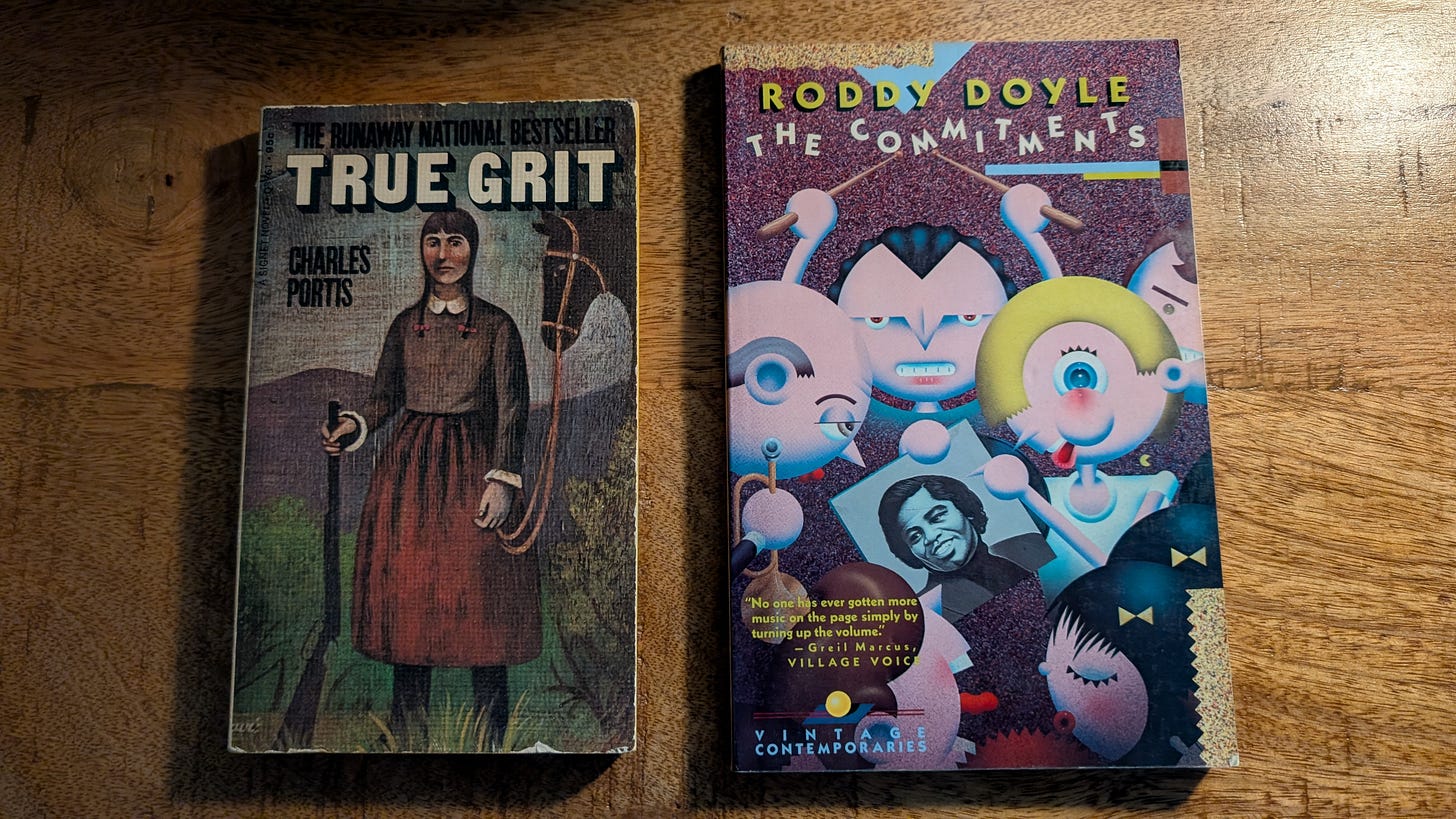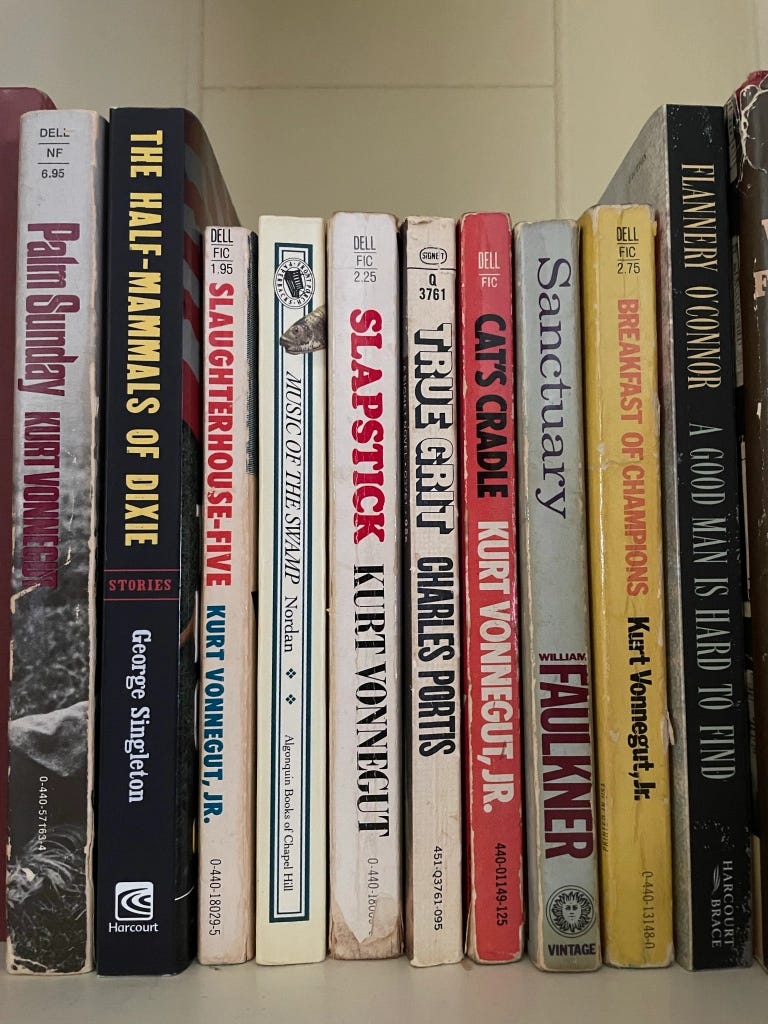Cold beer here
Or: How to pitch literary fiction in a world where the average book sells 100 copies
When my novel EVERYBODY KNOWS was published in 2023, I leaned into its weirdness. I swung from the rafters of its bonkers nature. It was, after all, a novel with footnotes, pirates, and a lightning bolt that stretched 1,243 miles. God was in it, as a frustrated writer pecking away on a 1931 Conti Klein typewriter with cream-colored keys that matched His robe. As per plot, there was a Southern governor fleeing the flooded capital on a literal ship of fools, holding cabinet meetings while sitting on his version of a throne — the state’s former electric chair, Old Smokey.
I ran with all that. I reveled. I told would-be readers of this wild-ride volume of Southern-fried speculative fiction, “You’ve never read a book like this.”
Some two years later, they mostly still haven’t.
That was my bad. That was dumb. I had appealed to the adventurous nature of readers, to the allure of tricky fiction, of knotty novels. I did this in an age when serious reading is supposedly dead or dying — when the average book in this country sells 100 copies, across all size presses, as I was told by someone in the publishing business, someone in position to know. I did this in the age of streaming and scrolling and otherwise living with our attention spans on a swivel.
When a show host on the Memphis NPR affiliate interviewed me before the book launch and told listeners that EVERYBODY KNOWS was “something that you’re going to want to savor. It’s not a cold beer after mowing the lawn. It’s more like a fine bourbon, sitting by the fireside,” that became my favorite compliment ever, and the host — Darel Snodgrass of WKNO’s “Checking on the Arts” — my new favorite person.
But I realize now how busy commuters must have translated the praise: You know those difficult novels people used to actually devote their valuable time and mental energies to reading, back when our time was not just valuable but vast? This is one of those.
Well, lesson learned. So, with a new novel about to be published — COME AGAIN NO MORE (JackLeg Press), available for preorder now in advance of Nov. 10 publication! — I’m taking a savvy new approach.
I don’t want to scare off, dare, or otherwise throw down on would-be readers.
I want to offer them a cold beer.
That is, I want to entice them to the easy pleasures of COME AGAIN NO MORE. It’s short (196 pages) and affordable ($18 in paperback for a signed copy, if preordered from my local, Memphis’s Burke’s Book Store). It’s funny, poignant, and joyfully profane. It’s a breeze to read, honest! It’s the story of newspaper reporter Charley Hull, latest casualty of a dying industry. Over the course of the novel, we see Charley bottom out and rise again, with the help of old friends and a new love. It’s a redemption story. People love those, right?
There are no footnotes. No pirates. God does not appear, though His name may be taken in vain.
And there’s no idiot author in a Piggly Wiggly ballcap saying, “You’ve never read a book like this.”
This time, I’ll happily offer touchstones. I’ll play that publishing game of “If you loved (namedrop a beloved title), you’ll enjoy COME AGAIN NO MORE.” I’ll suggest there are shades of Charles Portis — you know, the guy who wrote TRUE GRIT, and lesser-known comic marvels like NORWOOD and THE DOG OF THE SOUTH, and who, like Charley Hull and myself, was a former Memphis newspaper reporter. I’ll also tease that whiff of the Irish in the prose — especially Roddy Doyle’s Barrytown novels, THE COMMITMENTS and such, for their banter and salty language and abounding earthiness.
If you haven’t read those books either, no worries. I’m betting you’ll have seen the movies.
Now, is there something nefarious on my part in all this? In a way, sure. Allow me to let you in, dear reader, on an apparently well-kept secret: EVERYBODY KNOWS, for all its weirdness, wasn’t a difficult book to read or follow. It wasn’t even all that weird, structurally. The footnotes were wry, not dry — footnotes for people who don’t like footnotes. Footnotes about Patsy Cline’s death plane, how to mix a Boulevardier, and William Faulkner’s use of the word “dingdong” in his Nobel Prize speech.
The book was a satire — of all manner of culturally and politically pertinent things, like race and religion, climate change, crime and punishment — and no more bonkers than a random Tuesday in Trump’s America.
When I said, “You’ve never read a book like this,” I wasn’t lying. But I could also have, hand to heart, likened it to A CONFEDERACY OF DUNCES, or something out of the Barry Hannah oeuvre. I could have said it was my attempt to be a Southern Kurt Vonnegut — it was!
Likewise, I could flip my pitch for COME AGAIN NO MORE and say it’s singular (it sort of is; shouldn't every novel be?) and not quite like anything else you’ve read (uh-uh, not going there again). Which is to say, comparing one book to another is useful and silly. It’s a crutch and a helping hand. It’s a lie with a good heart. It’s how books these days are sold — or not.
Anyway, I have a new novel out. Let me tell you a little about it. It’s literary fiction with lots of Southern lyricism — like a song by Johnny Cash, or Waxahatchee. It’s personal, informed by my 35 years as a newspaper reporter and editor, but also universal, in a world where so many jobs and industries are fading away or have outright vanished. It’s timely yet timeless — the title comes from the lyrics of “Hard Times,” the Stephen Foster song that’s been covered by everyone from Bob Dylan to Mary J. Blige and the Roots. Truth is, the times have always been hard, whether the revolution of the moment is industrial or digital.
Mostly, COME AGAIN NO MORE is the story of Charley Hull, erstwhile reporter — but far more Joe Sixpack than Media Elite. He’s not much of a people person but he warms up nicely. He dresses haphazardly, drinks too much, puts on no airs. See, he’s only ever wanted to be one thing. Now he’s got to cope with what’s left of a life given to a job he’s loved and lost. Like many of us would, he copes poorly, but he’ll come around, in the end.
I repaired back home. I resumed imagining new careers and writing them on the wall.
Stunt man. Wing walker. Gandy dancer. (Ambitious undertakings, granted, for a man who recently fell in shrubbery while attempting to stand.)
Chimneysweep. Bootblack. Costermonger. Hasher. (Great, I could get a job as a character in a Dickens novel.)
Spirit. Specter. (The ghost of Hank Williams said I’d never get out of this world alive.)
Charlie’s good people, trust me on this. Smart but not showy about it. Has a knack for self-sabotage. Hates blowhards, bullies, and most bosses. Loves dive bars, dirty blues, and old cemeteries. As for the verities, he believes in the power of words and the sanctity of deadlines. I don’t think he believes in reincarnation, but in a previous life he might well have been a John Prine song, one that was funny and sad, hopeful and heartbreaking, all at the same time.
Tell me you wouldn’t want to drink a cold beer with this guy.
More on COME AGAIN NO MORE:







Can hardly wait to read. Your new novel. Your description is enticing! Congratulations 🎉🎉👏👏👍👍
Sold!